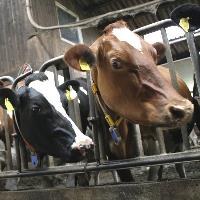(LUXEMBOURG) – The European Court of Auditors has announced it is to examine whether the European Commission and the EU Member States have made effective contributions to the EUs animal welfare objectives.
This is the first time that the EU auditors have focused entirely on animal welfare. They will assess the action taken to achieve compliance with animal welfare legislation and to improve coordination between animal welfare activities and the Common Agricultural Policy.
The audit was announced on World Animal Day, the aim of which is to raise the status of animals in order to improve welfare standards around the globe.
The auditors will visit five Member States: Romania, Poland, France, Italy and Germany. Their audit will be confined to farm animals those most frequently referred to in EU legislation. There are an estimated 4.5 billion chickens, egg-laying hens and turkeys in the EU, and some 330 million cows, pigs, goats and sheep. As well as animals’ lifetime on the farm, the audit will also cover their transport and slaughter.
For the 2014-2020 period, EU rural development funds allocated to “animal welfare payments” amount to around 1.5 billion. The measures are intended to encourage enhanced welfare levels that exceed both EU and national minimum requirements.
“EU citizens are becoming increasingly concerned about animal welfare and the EU has some of the world’s highest regulatory standards in this area. Our audit will be an opportunity to check whether those standards are being put into practice”, said Janusz Wojciechowski, the Member of the European Court of Auditors responsible for the audit.
The audit report is expected to be published in late 2018.
Responsibility for enforcing animal welfare legislation is shared between the European Commission and the EU Member States. In February 2012, the Commission adopted its strategy for the 2012-2015 period, aimed at ensuring that existing animal welfare standards are consistently applied and enforced across the EU, that animal welfare is taken into account in international action, that consumers are well informed and that coordination with the Common Agricultural Policy is maximised.


